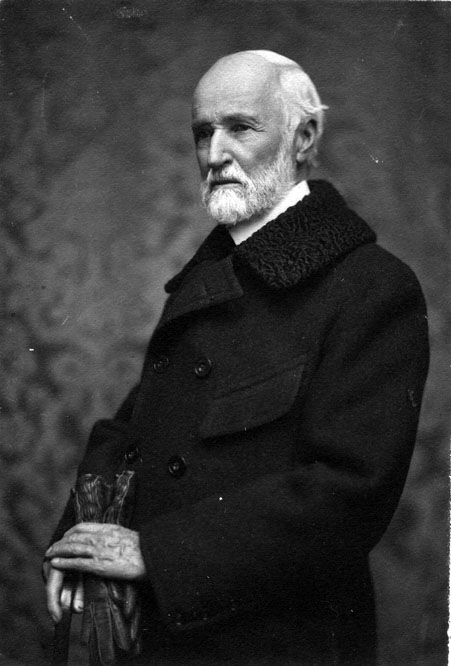On Aug. 30, 1906, The Asheville Citizen reported that George Willis Pack “was very ill.” A wealthy lumberman, Pack first arrived in Asheville in 1884 by way of Cleveland, Ohio. He and his wife, Frances, had relocated to the mountains on account of health issues (Frances suffered from a throat ailment).
But by 1906, Pack was back in his home state of New York. “Mr. Pack has been living away from Asheville for the last few years, the city’s altitude being too great for him,” the paper noted. “But during this time he has from time to time made munificent gifts to the city, as had been his custom before leaving.”
Pack’s contributions to Asheville were manifold. He donated both land and buildings to the city, as well as financial support to health and educational institutions, including Mission Hospital. And although a staunch abolitionist and supporter of Abraham Lincoln during the Civil War, he would later develop a friendship with Zebulon Vance. Upon Vance’s death in 1894, it was Pack who proposed the idea for (and would later help finance) a monument to the former wartime governor. (See “A mystery in-deed: Who owns Pack Square?” Sept. 15, 2017, Xpress)
Pack died in his Long Island home on Aug. 31, 1906, a result of heart failure. In the following day’s paper, The Asheville Citizen featured local coverage, as well as a tribute from the Cleveland Leader. Not surprisingly, both accounts highlighted Pack’s philanthropy. The paper’s local account read:
“George W. Pack is dead. And standing in sorrow beside his bier, every Ashevillian, young and old, will say, ‘A good man has passed away.’ No grief can be too deep, no eulogy too extravagant, no memorial shaft too costly to do justice to him in whose heart the city of Asheville was enshrined. In life he lived in spirit among the peaks and glens he loved so well; he could not be with us in the flesh, for fate had decreed that not in his adopted land should he seek the pearl of health, but in far off communities should he watch with longing the sinking of that sun which he knew had kissed these mountains each passing day. But though barred from actively participating in our daily life, the hand of George W. Pack was ever open to pour his bounties on the city which was green in his memory. Gift after gift fell to Asheville, and charity after charity was aided; no cause pleaded in vain, for he knew neither creed or politics when an appeal was made.
And now he is dead! The heart so full of the milk of human kindness will beat no more: the hand ever open to a generous deed is cold in death. What words or grief can adequately express the loss we have sustained? Not in matter material do we of Asheville reckon our misfortune, but in the departure of a friend among friends are we poor indeed. Our loss is greater and more keenly felt, not because it is a private one, but because it is public and universal. His death is not the removal of a candle, but the extinguishing of a light of the world and a public good. Every man who knew him, or heard of him, claims a share in this universal grief and bewails his particular loss in him. A stricken wife laments a faithful husband; son and daughters through their tears remember an affectionate and indulgent father; relations cry out for the loss of their dearest and most useful kinsman; friends bewail their being torn from a friend indeed; the poor groan for the death of a noble benefactor, and the church mourns because she feels herself deprived of one of the purest lights.”
Pack’s funeral took place Sept. 4, 1906, in Cleveland. Meanwhile, Asheville held its own memorial inside the courthouse that day. The morning paper asked that all ministers be present. It also requested that all city schools and businesses close during the afternoon service.
Editor’s note: Peculiarities of spelling and punctuation are preserved from the original documents.




Before you comment
The comments section is here to provide a platform for civil dialogue on the issues we face together as a local community. Xpress is committed to offering this platform for all voices, but when the tone of the discussion gets nasty or strays off topic, we believe many people choose not to participate. Xpress editors are determined to moderate comments to ensure a constructive interchange is maintained. All comments judged not to be in keeping with the spirit of civil discourse will be removed and repeat violators will be banned. See here for our terms of service. Thank you for being part of this effort to promote respectful discussion.